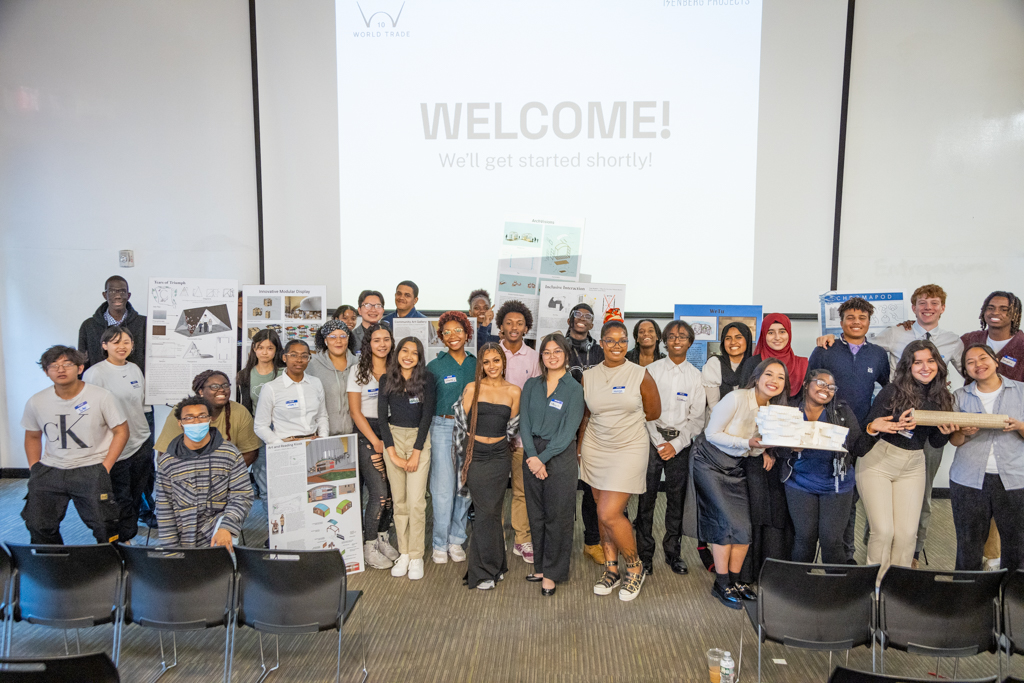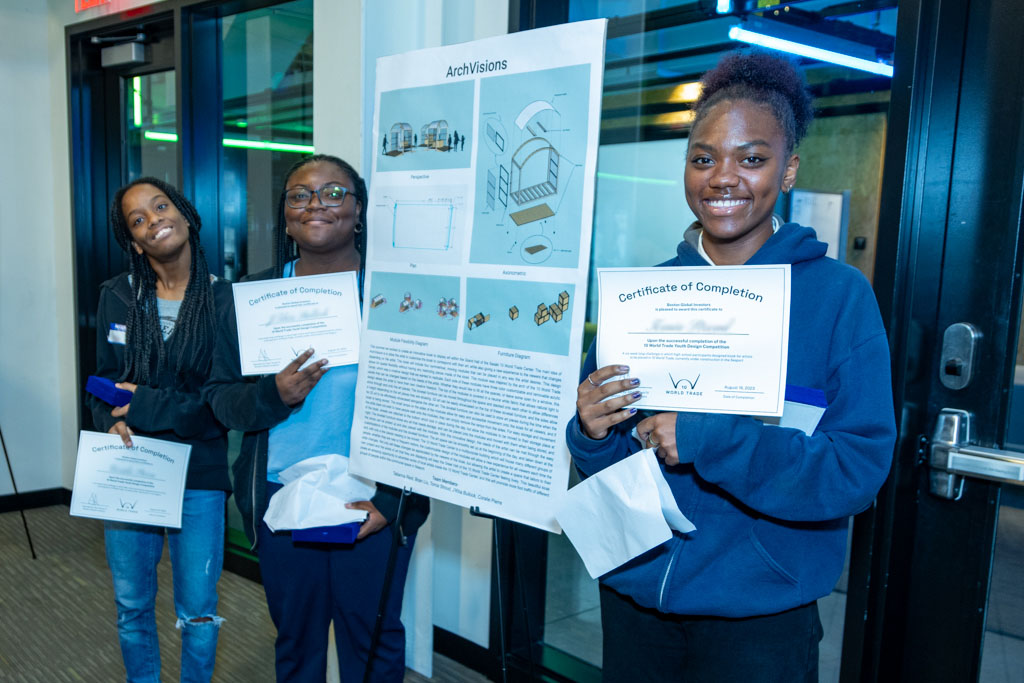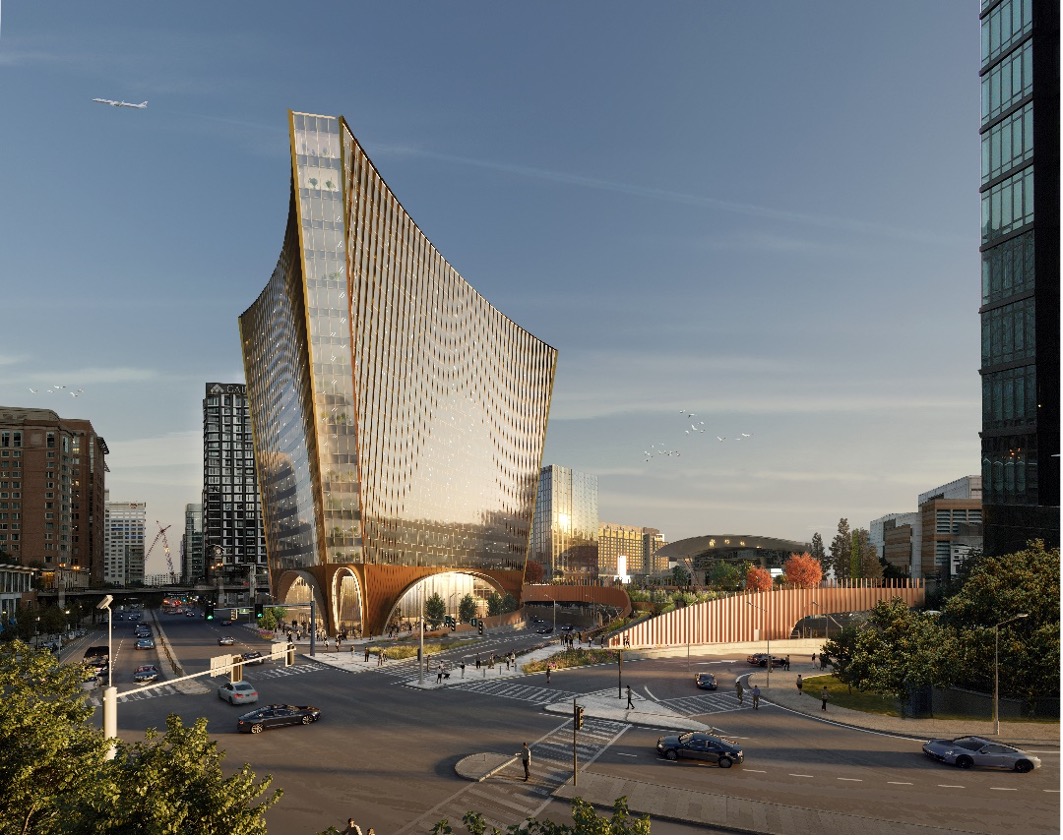The Next Generation of Designers is Already Leaving its Mark

Student teams participating in the 10 World Trade Youth Design Competition
Boston, MA -- On August 16th, the development team for the 10 World Trade project hosted their inaugural Youth Design Competition at District Hall. The program’s goal is to engage with aspiring young designers and provide them an opportunity to leave their own mark at 10 World Trade, soon to be one of the most iconic buildings and public spaces in Boston’s thriving Seaport. This year 40 high school students from the Boston area participated from three design education organizations: The Hideo Sasaki Foundation, YouthBuild Boston, and Digital Ready. Over the course of 2024, the winning kiosk design will be built and become a component in the building’s ground floor Great Hall where artists and creative nonprofits can showcase their work on rotation.
All three collaborating organizations were chosen for their collective missions to diversify and broaden access to design career education and resources in our local communities. This mission is in line with the goals set forth by the project’s development team in its successful proposal to develop Massport’s Parcel A-2. A key component of Massport’s selection process for the site was to demonstrate a commitment to Diversity, Equity and Inclusion (DEI) in what has become widely known as the “Massport Model.”

Student team from Digital Ready sharing their designs
Spearheaded by Isenberg Projects, the programming consultant for the 10 World Trade project, the summer program kicked off on July 11th at WPI’s Seaport Event Center with a series of presentations by project representatives from the lead developer, BGI, as well as from Massport and the building architects at Sasaki. The student teams received a formal Request for Proposals (RFP) outlining the program requirements. The RFP suggested the teams not only consider innovation in their approach, but also it encouraged them to demonstrate their design’s practical functionality.
Students from YouthBuild Boston said this process helped them “learn to accept lots of trial and error and understand the importance of teamwork,” and that they “loved being pushed, learning to speak up, and asking others for ideas and ways to elevate their kiosk.”
The student teams drew a variety of inspirations for their kiosk designs ranging from nature, community, art, and local indigenous groups, with tremendous detail and thought added to each concept.

(right to left) judges John Hynes IV, Erik Rueda, and Philip Dugdale.
Out of the eight teams represented, Team Sassafras from the Hideo Sasaki Foundation won the day. Their woven hut concept, the “WeTu”, draws inspiration from the underrepresented indigenous groups of Massachusetts. The unique design was inspired by the natural shape of a curved leaf, inviting artists of various mediums to exhibit their work within an organic shape that mimics the curves and weaving patterns of the building. Team Sassafras noted they “wanted to show underrepresentation and different groups because Seaport is known to be for the upper-class and exclusive,” they aimed to “break that boundary by having people from different cultures come to this area, that’s what inspired our hut to be something different but inviting.”
Throughout 2024, the Isenberg Projects and the 10 World Trade team will focus on bringing the WeTu kiosk design to life. Please follow along in our journey on the 10 World Trade Blog to receive updates on the exhibition and fabrication process along with other project highlights!





# # #

About 10 World Trade
10 World Trade is a 17-story commercial building in Boston’s Seaport neighborhood. The project sits on Massport property and is overseen by local developer Boston Global Investors (BGI). In addition to its goal of being Boston’s smartest sustainable development when it opens in January 2025, 10 World Trade is also implementing an ambitious vision for diversity, accessibility, and cultural inclusion.
About Hideo Sasaki Foundation
The Hideo Sasaki Foundation fosters equity and inclusivity by engaging diverse groups and individuals in the design of the environment. Their SEED program is an annual six-week paid internship structured holistically around introducing young high school students to the world of design. The program is an intensive deep dive into collaborative project work, office culture, and design fundamentals. The program works closely with Sasaki to provide the students with access to world-class projects and the people who design them.
About YouthBuild Boston
YouthBuild Boston (YBB) was founded in 1990 with the goal of providing underserved young people with the support and credentials needed to successfully enter the construction and design industry. The Designery hosts high school students and gives them an enriching experience. Students are paid a bi-weekly stipend while they hone fundamental graphic, modeling, and design-thinking skills through real design projects.
About Digital Ready
Digital Ready aims to activate the creative potential of high school students, especially underrepresented young people, to build tangible pathways to economic opportunities in Boston’s innovation economy. The summer program provides high-quality, work-based learning opportunities and no-cost college credits for underrepresented Boston students. Students earn both college credits towards future college-level coursework and wages through the summer.
